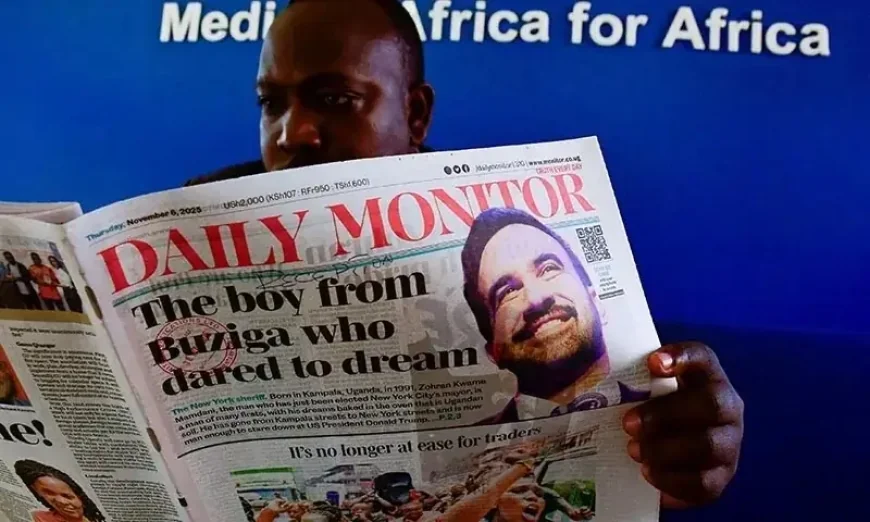When Zohran Mamdani spoke out against inequality and corruption during his challenging campaign for a New York City council seat, Joseph Beyanga of Uganda's Daily Monitor recalled a conversation he had with the then-intern at the newspaper's sports desk nearly 20 years ago.
"Mamdani used to sit with me in the production room," Beyanga, now the Daily Monitor's media manager, told Reuters. "He would always ask me, 'So who does this affect? Who pays the price?'"
"He was always interested in how the bigger picture affected the common man," Beyanga said.
Mamdani's staunchly progressive message, focused on lowering the cost of living and addressing inequalities through direct government intervention, propelled the 34-year-old to victory in Tuesday's election, which saw the highest voter turnout in America's most populous city since 1969.
Young Mamdani lived a 'simple life' despite privilege
The son of a Ugandan academic of Indian descent and an Indian-American filmmaker, Mamdani was born in Kampala, the capital of Uganda, and spent his early years there, where his family lived in an affluent area on the shores of Lake Victoria.
He also spent time in South Africa, India, and the United States, where his father, Mahmood, teaches at Columbia University.
Although his surroundings in Kampala's leafy Buziga neighborhood were vastly different from the abject poverty of the city's sprawling slums, his mentors from his internship days said the then-15-year-old Mamdani had a deep interest in questions of economic injustice because of his experiences in Uganda.
"Being in Uganda, where there are problems of inequality and corruption – that must have had a profound impact on him," said Mark Namanja, the Daily Monitor's sports editor. Mamdani has previously acknowledged that his upbringing was "privileged" and has denied that there was any tension between him and leftist policies.
Beyanga recounted that during his internship, Mamdani would eat lunch at a makeshift canteen where boiled bananas and maize porridge were served to the city's working class, and that he liked to get around the city on boda-bodas, or motorcycle taxis. "He liked to live simply, nothing flashy," Beyanga said. Mamdani had strong opinions on political issues.
Mamdani's father had faced hardships. In 1972, Mahmood Mamdani and his family were among the thousands of people of Asian descent expelled from Uganda by dictator Idi Amin, who accused them of exploiting the economy.
Mahmood fled to Britain before returning to Uganda after Amin's fall.
Beyanga and Namanya said that despite his young age, Mamdani had strong opinions on major geopolitical issues. Namanya recalled a conversation about foreign aid, which has been a major topic of American political discussion this year following US President Donald Trump's proposal to eliminate the US Agency for International Development (USAID).
Namanya said that while liberals were condemning the Trump administration's moves to cut aid to poor countries, the young Mamdani was skeptical of foreign aid, echoing the argument of leftist critics that the system benefits donor countries at the expense of its supposed beneficiaries.
"Zohran was the first person, which is strange because I was older than him, who explained to me that aid given to African countries is a sham," he said. Hannington Muhumuza, a music producer who worked with Mamdani on the soundtrack for Queen of Katwe—a film directed by Mamdani's mother, Mira Nair, about a girl from a Kampala slum who becomes a successful chess player—said that Mamdani was well aware of the harsh realities of life for many poor Ugandans.
“He’s been everywhere, in the slums, he knows what real life is like and how the average Ugandan lives,” Muhumuza told Reuters. “For him, that has always been the most important thing… how he can uplift them. How he can be a part of their lives and make a positive impact on them… that’s what I really saw in him.”

 Like
0
Like
0
 Dislike
0
Dislike
0
 Love
0
Love
0
 Funny
0
Funny
0
 Angry
0
Angry
0
 Sad
0
Sad
0
 Wow
0
Wow
0











































